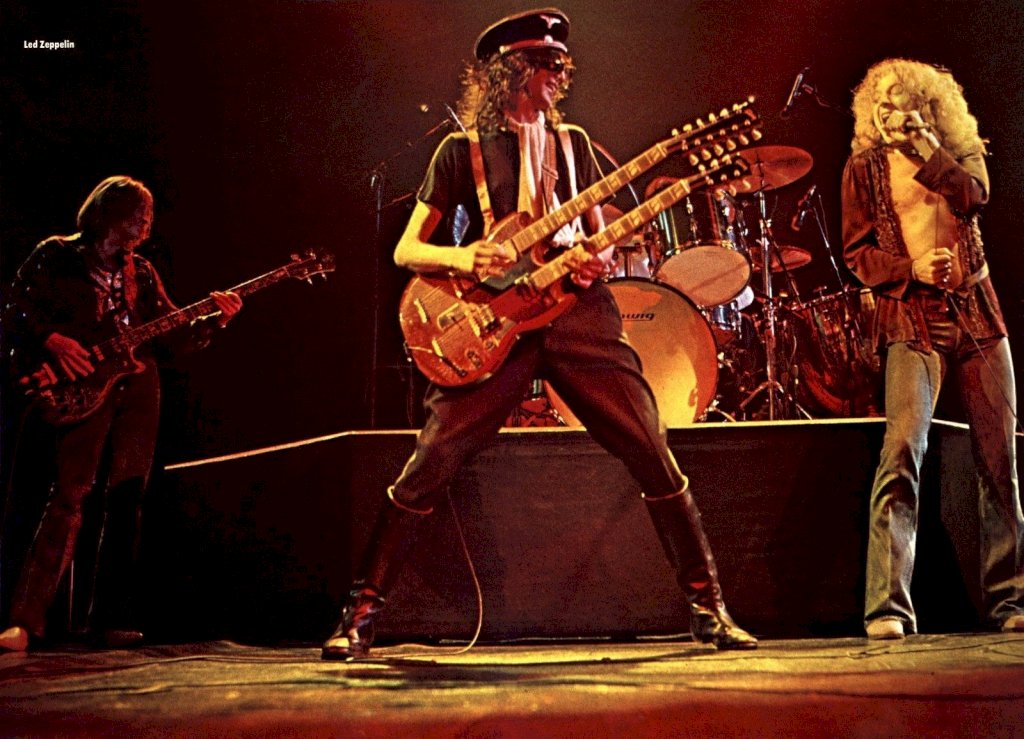The Beatles: The Phenomenon that Redefined Music History
The Beatles, an iconic British rock band formed in Liverpool in 1960, is undoubtedly one of the most influential and celebrated musical acts in history.
Comprising four talented members – John Lennon, Paul McCartney, George Harrison, and Ringo Starr – The Beatles revolutionized the world of music and left an indelible mark on popular culture.
Over their decade-long career, The Beatles achieved unparalleled success, reshaping the landscape of the music industry and inspiring generations of artists and fans alike. This article explores the fascinating journey of The Beatles, from their humble beginnings to their unparalleled worldwide fame and legacy that continues to resonate to this day.
1. The Early Years and Formation of The Beatles
The Beatles' journey began in the late 1950s in the vibrant city of Liverpool, England. John Lennon, a talented young musician, formed a skiffle group called The Quarrymen. It was during one of their performances at the St. Peter's Church fete in July 1957 that Lennon first met Paul McCartney. Impressed by McCartney's musical talent, Lennon invited him to join The Quarrymen.
Soon after, another significant addition was made to the group when George Harrison, a young guitarist, joined in February 1958. The trio's chemistry and musical prowess were evident, and they quickly gained local popularity. In 1960, Stuart Sutcliffe, a close friend of Lennon's and an aspiring artist, joined the band as a bass player. Shortly afterward, Ringo Starr (then known as Richard Starkey) replaced Pete Best as the drummer, solidifying the lineup that would eventually become The Beatles.
2. The Hamburg Years: Musical Growth and Development
In search of more significant opportunities, The Beatles traveled to Hamburg, Germany, where they honed their skills and performed in various clubs. The Hamburg experience was a pivotal period in the band's development, as they played extended sets and immersed themselves in the thriving music scene. The intense schedule and relentless performances allowed them to refine their sound and stage presence.
The band's connection with British record producer Brian Epstein was a crucial turning point in their career. Impressed by The Beatles' talent and charisma, Epstein took on the role of their manager and negotiated a recording contract with Parlophone, a subsidiary of EMI Records. In October 1962, The Beatles released their debut single, "Love Me Do," which entered the UK charts and marked the beginning of their meteoric rise to fame.
3. Beatlemania and Global Stardom
In early 1963, The Beatles' popularity in the UK skyrocketed, with their singles consistently topping the charts. Their infectious melodies, harmonies, and energetic performances appealed to a broad audience, including teenagers, music enthusiasts, and even parents.
As The Beatles conquered Britain, they embarked on a groundbreaking tour of the United States in February 1964, where they performed on the Ed Sullivan Show to an estimated 73 million viewers – a defining moment in their career.
The United States was swept up in "Beatlemania," a cultural phenomenon characterized by adoring fans, screaming crowds, and an insatiable demand for anything related to The Beatles. The band's musical influence extended far beyond the music charts, permeating various aspects of popular culture, from fashion and hairstyles to film and art.
4. Evolution of The Beatles' Music
The Beatles' music underwent significant evolution and experimentation throughout their career. In their early years, they primarily performed upbeat, catchy pop songs that resonated with a youthful audience. As their musicality and creative ambitions grew, The Beatles began to explore new genres, incorporating elements of folk, rock 'n' roll, rhythm and blues, and even Indian music.
Albums such as "Rubber Soul," "Revolver," and "Sgt. Pepper's Lonely Hearts Club Band" showcased their artistic depth and innovative approach to songwriting and production. Their willingness to push musical boundaries and experiment with studio techniques, such as tape loops and backward recordings, revolutionized the concept of what could be achieved in a recording studio.
The Beatles' artistic growth and willingness to experiment culminated in the release of "Revolver" in 1966, often regarded as one of the greatest albums of all time. It signaled a shift from their earlier, more straightforward pop songs to a more introspective and mature style of songwriting.
5. The Cultural Impact of The Beatles
Beyond their undeniable musical talent, The Beatles were also influential figures in the realm of fashion, art, and social change. With their distinctive "mop-top" hairstyles, sharp suits, and charismatic personas, they set trends and became symbols of a generation. Their embrace of Eastern spirituality and exploration of psychedelic experiences also contributed to the countercultural movement of the 1960s.
Their 1967 film, "Magical Mystery Tour," exemplified their creativity and unconventional storytelling, pushing the boundaries of what a music film could be. Moreover, their visit to India to study transcendental meditation with Maharishi Mahesh Yogi further sparked interest in Eastern philosophies and practices among their fans.
6. The Breakup of The Beatles
Despite their unparalleled success and global adoration, tensions began to emerge within the band in the late 1960s. Creative differences, personal disagreements, and individual pursuits outside the group contributed to a growing sense of strain. In 1969, tensions reached a breaking point, and The Beatles officially disbanded.
The breakup was a bittersweet moment for fans worldwide, as it marked the end of an era. Each member pursued solo careers, with varying degrees of success. John Lennon and Paul McCartney, in particular, enjoyed notable solo careers, with McCartney forming the band Wings and Lennon releasing several critically acclaimed albums.
7. The Beatles' Legacy and Continued Influence
Despite their relatively short career as a band, The Beatles' legacy endures, and their influence on music and popular culture remains profound. Their catalog of timeless songs continues to be celebrated and enjoyed by people of all ages, and their impact on subsequent generations of musicians is immeasurable.
The Beatles' impact on the recording industry is also noteworthy. Their groundbreaking studio techniques and innovations in music production set new standards for the art of recording, influencing generations of producers and engineers.
Additionally, The Beatles' influence extends beyond music, as their legacy can be seen in literature, film, art, and even technology. Their enduring popularity has resulted in numerous documentaries, books, and tribute projects, keeping their memory alive for new generations.
Conclusion
The Beatles' unparalleled success, innovative spirit, and cultural impact make them a true phenomenon in the history of music. From their humble beginnings in Liverpool to their iconic status as global superstars, The Beatles' journey is a testament to the power of creativity, collaboration, and the enduring power of music to connect people across time and space. Decades after their breakup, the spirit of The Beatles continues to live on in their timeless songs and the countless artists they have inspired. As long as music exists, The Beatles will remain an everlasting part of its history, forever remembered as the Fab Four who changed the world of music and left an indelible mark on the hearts of millions.


